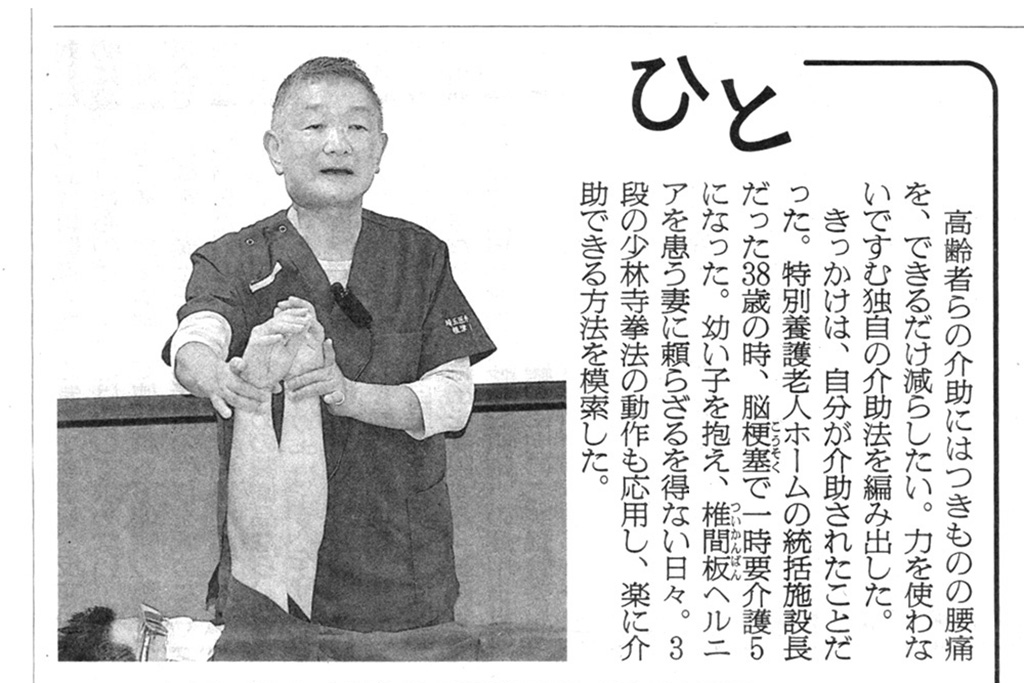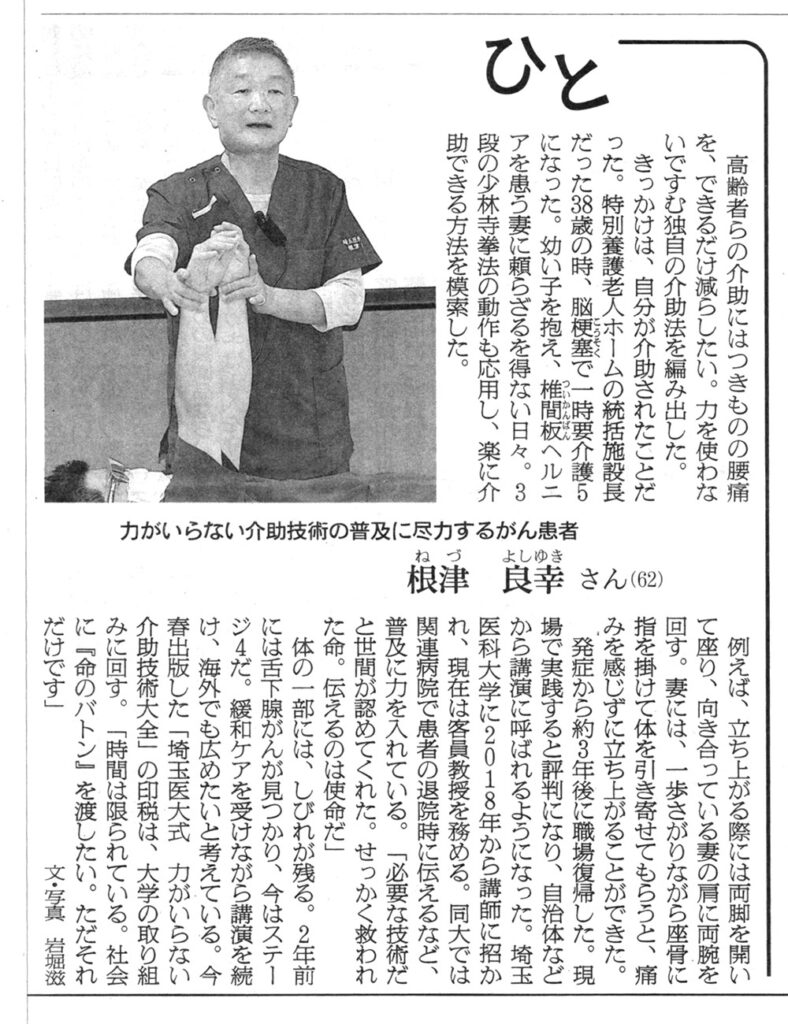【Newspaper】An interview with Prof. Yoshiyuki Nezu appeared in the morning edition of the Asahi Shimbun newspaper on Friday, September 29, 2023!

An interview with Prof. Yoshiyuki Nezu, visiting professor at Saitama Medical University and the chairperson of the executive committee of the "Nursing and Care Technology Project Promotion Committee," was featured in the "People" section on page 3 of the morning edition of the Asahi Shimbun on Friday, September 29, 2023.
In the article, Prof. Nezu talks about how he developed a unique assisting technique that does not burden the caregiver's back and allows the person being cared for to surrender himself/herself to the caregiver with peace of mind.
The article clearly conveys Prof. Nezu's passion for spreading his medical evidence-based caregiving techniques to people around the world who are suffering from caregiving, even though he is battling stage 4 cancer. Please read the article about Prof. Nezu's efforts to pass the baton of life to the next generation.

<HITO>
Cancer Patient Dedicated to Promoting Assistive Technology that Requires No Force
Yoshiyuki Nezu (age 62)
We want to reduce back pain, which is a common problem when assisting the elderly, as much as possible. He has developed a unique method of assisting the elderly that does not require a lot of strength.
The trigger was that I was assisted. At the age of 38, when he was the general manager of a special nursing home for the elderly, he suffered a stroke that left him needing 5 levels of nursing care for a time. He had to rely on his wife, who had a herniated disc and a young child. Applying the movements of 3-dan SHORINJI KEMPO, he sought a way to assist himself with ease.
For example, when standing up, I would sit with my legs open and put my arms around my wife's shoulders as we faced each other. I asked my wife to take a step back by putting her fingers on my sitting bones while stepping back, and I was able to stand up without pain.
He returned to work about three years after the onset of the disease. When he put it into practice in the field, it was well received, and he was invited to give lectures by local governments and other organizations. He was invited to teach at Saitama Medical University in 2018 and is currently a visiting professor. At the university, he has been making efforts to spread the use of this assisting technique, such as teaching it to patients when they are discharged from the hospital at affiliated hospitals. The public has recognized that this is a necessary technology. It is my mission to tell the world about it.
Parts of his body remain numb; two years ago he was found to have parotid cancer, now stage 4. While receiving palliative care, he continues to give lectures and hopes to spread his message overseas. He will use the royalties from his book, “Saitama Medical University Style: Comprehensive Skills for Caregiving that Require No Strength,” which was published this spring, to support the university's efforts. ”Time is limited. I want to pass the baton of life to society. That's all I want to do.”



